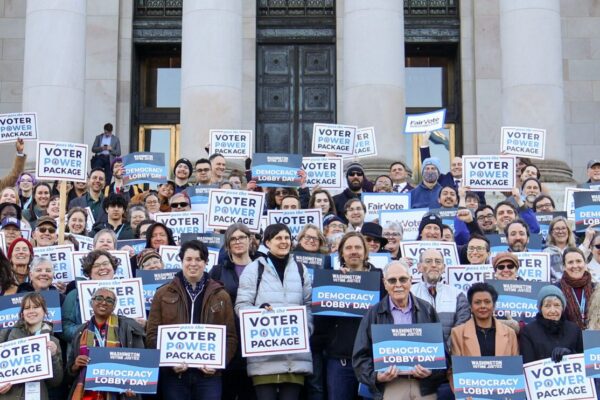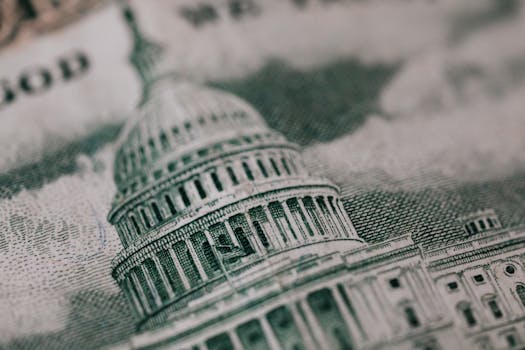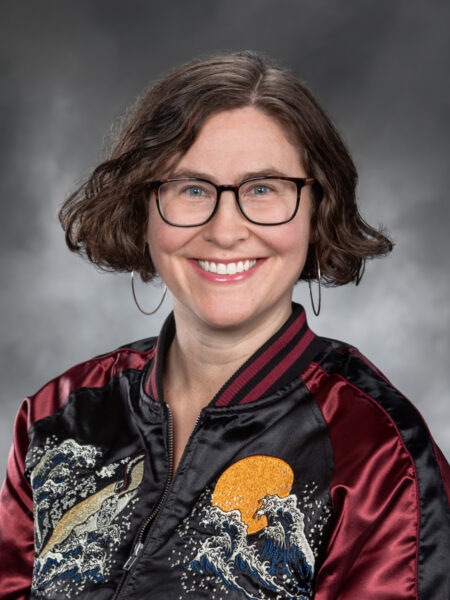Washington Conservation Action (WCA) is committed to amplifying the voices of our partners and of our communities. In that spirit, we publish Q&A blogs featuring people and leaders connected to our organization from around the state.
After serving three terms on the Issaquah City Council, Victoria Hunt in 2024 ran for state representative, Position 1 in the 5th Legislative District, newly drawn and reaching from Seattle’s western suburbs to Snoqualmie Pass in the Cascades.
Hunt holds a Ph.D. in Ecology and has experience in climate action planning. A data scientist, she advises local governments on reducing carbon emissions. Hunt emphasized climate change in her campaign. She stressed the need to both decrease our reliance on fossil fuels and to adapt to the climate changes that are already happening. Washington Conservation Action endorsed Hunt, and she won the seat in the November General Election.
Hunt is the primary sponsor of the Sewage Spill Right to Know Act, which would make information about sewage spills more accessible to the public. The bill just passed the state Senate, as well as passed through in concurrence with the House, and now goes to the Governor’s desk for signature.
Hunt sat down with us to answer a few questions:
You’re the sponsor of the state House bill that would make it easier for the public to know about sewage spills. As you know, that bill is one of the 2025 priorities of the Environmental Priorities Coalition, a group of nearly 30 statewide environmental groups that WCA founded and helps to lead. Why do you support the bill?
I’m really honored to be the prime sponsor of that legislation. It will make sure that the public knows about spills reported to Ecology. This information is collected, but not easily available now. Groups that want to make sure the water is safe for salmon and orca, need information to advocate. People need to know when it’s safe to go swimming with kids. Oyster farmers need to know about water quality.
Why did you decide to run for state representative? In an already busy life, what motivates your involvement in politics?
Serving on the Issaquah City Council, I really fell in love with working on issues that matter to community in this beautiful place that we live.
Also, I have two young kids, ages 10 and 7. I want to show that you can be a scientist, you can be a teacher, you can be a leader in many different ways. We need people from many walks of life. I love that school groups come through the capitol, and that they see that leaders come in many forms.
How did WCA’s endorsement affect your campaign in 2024?
It was hugely helpful. The district changed a lot. Not only was I new, but the 5th LD was new to a lot of voters. I represent a community that values conservation and nature, so having that stamp of approval was great, having that name recognition, that trust. It was a competitive primary, so it helped to have WCA as one of my first endorsements.
Your district, which spans Issaquah to Enumclaw has been described as “purplish.” How do approach climate concerns in that sort of political environment?
We all have one thing in common: We all want a better earth for our children. I always keep in mind that we need to transition to cleaner energy and to build resilient communities, while also creating high-paying jobs.
I also try to work on issues that have multiple community benefits, including but not limited to climate change. In my district, we know that we need to have more opportunities to get around. There’s a lot of traffic congestion. People need to be more able to get to work on time, spend less time in traffic.
There are couple different ways to go about that: We need to build out infrastructure so people have different ways to get around: bike lanes and sidewalks for pedestrians. On housing, people are cost-burdened in my community so we know we need more housing, especially multifamily housing, and we need to build it in a better way that is more energy efficient. We can build these things with skills our workers have, create jobs and keep jobs in our state. With more energy efficient housing, folks will also save money.
Based on your experience doing climate action planning, what would you prioritize as Washington seeks to decarbonize its economy?
We are in a difficult budget year, and we are really trying to address our biggest challenges in the most cost-effective way possible. Transportation is key. To decarbonize our economy, we need to continue the transition to clean trucks, and to build out our EV infrastructure. Also, I want to work with communities to help them build more sustainably.
In terms of protecting people and nature, what keeps you up at night? What do you see as our greatest challenge?
I’m kept up by the increased wildfire risk. I want to make sure that our communities are resilient against wildfire. We’ve seen a divestment by the federal government in terms of support for the Federal Emergency Management Agency (FEMA) in terms of their likelihood to help if there’s a natural disaster. We in Washington state would be well served to make sure each community is resilient on its own. Where is the resiliency hub if power goes down? Where do people get information? These are issues I want to work on in the legislature.
Our greatest strength?
The strength of community, the willingness to jump in and help each other. In Issaquah, hundreds of people came together to take care of each other and to make a resilience hub, after the bomb cyclone last November.
Through past activism and policy progress, we’re also well positioned. We have a strong Climate Commitment Act, Clean Fuels Standard, Clean Energy Transformation Act. We have this landmark legislation. We will continue to make progress on the policy front building on these past gains.
Your donation ensures a sustainable future.


